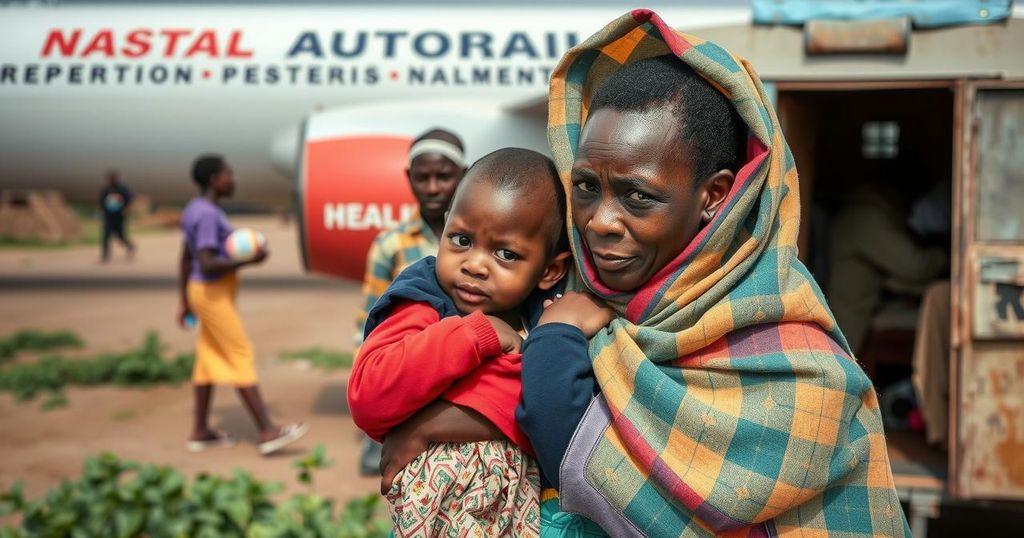Malawi is receiving a surge of approximately 13,000 refugees fleeing post-election violence in Mozambique, where unrest has arisen following the October 2023 elections. The Malawian government and international humanitarian organizations are responding by providing shelter and support to these individuals, who have arrived with nothing but the clothes on their backs.
On a quiet afternoon, 50-year-old Manase Madia displays his Mozambican identity card, a symbol of pride now flecked with uncertainty. In recent weeks, he has witnessed widespread violence, including the burning of homes and looting of businesses, which has deeply unsettled his family and community. Madia is among approximately 13,000 individuals who have fled Mozambique in search of safety in Malawi following post-election violence that has ignited protests and unrest since the election held on October 11. Throughout the months that followed, the situation deteriorated, resulting in targeted attacks on individuals based on their wealth or possessions, irrespective of their political affiliations.
Madia, who managed to escape with his family under threat, recounts his experience of narrowly fleeing armed groups armed with machetes. He notes that as violence escalated, it shifted from targeting political figures to rampant looting and crime. Many of his relatives are still hiding in fear, unsure of when they may be able to return home.
Since the recent elections, social unrest has consumed Mozambique, exacerbated by the constitutional council’s affirmation of election results that favored the ruling Frelimo party. Malawians have extended a warm welcome to the influx of refugees, despite their own struggles with severe food shortages following a drought. In response, the Malawian government, supported by humanitarian organizations including the UN Refugee Agency and the Red Cross, is establishing facilities to care for the displaced persons.
At refugee centers, humanitarian workers like Judith Fukizi are actively addressing the needs of families separated during this crisis. Initiatives are underway to support health screenings and sanitary conditions for those who have been relocated, while advocacy for additional resources continues to ensure the well-being of both refugees and host communities is prioritized. Local civil society groups are also advocating for comprehensive support to mitigate the strain on local resources while ensuring the needs of displaced individuals are met efficiently.
Moreover, the situation underscores the urgent need for robust humanitarian systems, increased resource allocation, and sustainable strategies to address both immediate and long-term impacts of such displacements.
The situation unfolding in Mozambique stems from post-election violence that began following the elections on October 11, 2023, where the ruling Frelimo party was declared the winner. The violence prompted an exodus of approximately 13,000 individuals seeking refuge in Malawi, evoking memories of past conflicts when similar large-scale migrations occurred during Mozambique’s civil war in the 1980s and early 1990s. This current wave of refugees is arriving amid Malawi’s declaration of a state of disaster due to a severe food shortage brought on by drought.
In conclusion, the influx of refugees into Malawi from Mozambique highlights the dire implications of political unrest and the need for humanitarian support. Malawi’s government and international organizations are responding to the crisis by establishing shelters and providing aid, demonstrating solidarity with the displaced individuals while grappling with their own resource challenges. The cooperation with local communities and ongoing assessments signal a commitment to addressing the complex needs of both refugees and hosts as the situation evolves.
Original Source: www.theguardian.com






